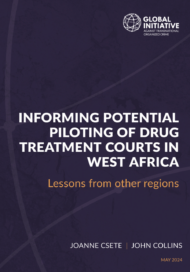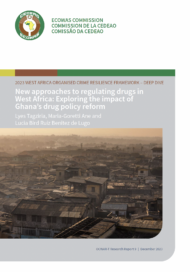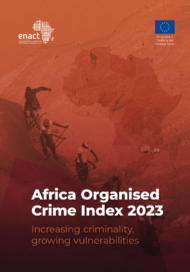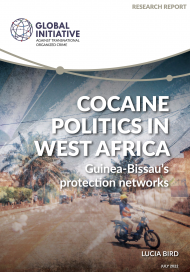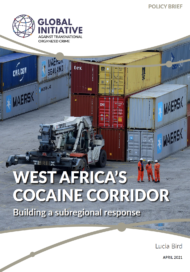Posted on 10 Jun 2024
West Africa has long been a transit point for cocaine moving from cultivation areas in Latin America to consumption markets in Europe. Supply and retail indicators suggest that the regional cocaine market has been in a period of sharp escalation since 2019.
In addition, a wide range of synthetic drugs – including tramadol – have entered regional drug consumption markets. West African governments are facing trends of expanding drug consumption. In this context, concerns about the harms of drug markets are increasing, as is recognition of the limitations and, in some cases, counterproductive nature of existing approaches.
Against this background, a number of countries belonging in the Economic Community of West African States (ECOWAS) are either considering or busy implementing reforms in their approach to drug policy, and ECOWAS representatives have shared the possible proposal to introduce court-based treatment programmes for low-level offences. This brief therefore aims to assist policymakers in ECOWAS and other West African countries in formulating and implementing policy reforms by setting out the existing evidence base and providing recommendations, particularly with regard to drug courts. To this end, it outlines the development of these courts, how they operate and the kinds of impacts that such interventions have had to date in a several jurisdictions.
Drug courts are intended to provide an alternative to imprisonment for people convicted or charged (and likely to be convicted) with minor, non-violent drug infractions, with a focus on supervised treatment for drug use disorders (DUD). Some drug courts are specifically designed for people who have committed petty theft or other minor offences as a result of their drug use. Drug courts typically have multiple objectives, including reducing the number of people imprisoned for low-level drug offences and providing people with DUD with evidence-based treatment and the kind of essential support that they are unlikely to receive in prison. However, despite their seemingly beneficial intentions, drug courts remain a controversial policy intervention.
While drug courts have gained some support in certain jurisdictions, achieving their goals can be challenging in practice. For example, in the US, where opioid use disorder is associated with high overdose mortality and a host of other social problems, many drug courts refuse to include methadone – a proven treatment for opioid use disorder – as an option for court-supervised treatment, often simply because a particular judge disapproves of this method. Such decisions by judges, often without consultation with medical professionals, have undermined the value of drug courts at a time when opioid-related overdoses are a major public health threat. In addition, the success of drug courts is largely dependent on the ready availability of effective treatment services and other social support services. This is a particularly important when considering their viability in West African contexts, where treatment services are often scarce and of variable quality, and complementary social support services are frequently limited.
